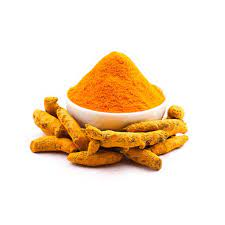Turmeric is a spice that has been used for centuries in traditional medicine and cooking. It is a member of the ginger family and is native to India and Southeast Asia. Turmeric has a distinctive bright yellow color and is commonly used to add flavor to food and as a natural dye. However, the benefits of turmeric go far beyond its culinary uses. In this article, we will explore the importance of turmeric and its many health benefits.
Turmeric is packed with nutrients and antioxidants that are essential for maintaining good health. It is rich in curcumin, a compound that has powerful anti-inflammatory and antioxidant properties. Curcumin is responsible for the bright yellow color of turmeric and is believed to be the primary source of its health benefits.
Anti-inflammatory Properties
One of the most important benefits of turmeric is its anti-inflammatory properties. Chronic inflammation is a common factor in many chronic diseases, including heart disease, cancer, and Alzheimer's disease. Curcumin has been shown to be effective in reducing inflammation in the body, which may help to prevent or manage these conditions.
Studies have shown that curcumin is as effective as some anti-inflammatory drugs, but without the harmful side effects. It can reduce inflammation by blocking the production of certain enzymes that cause inflammation in the body. Curcumin also boosts the activity of the body's own antioxidant enzymes, which helps to neutralize free radicals that contribute to inflammation.
Heart Health
Turmeric has been shown to be beneficial for heart health. It can help to improve cholesterol levels by reducing the amount of LDL or "bad" cholesterol in the blood. This can help to reduce the risk of heart disease and stroke.
Curcumin has also been shown to improve the function of the endothelium, the lining of the blood vessels. This can help to improve blood flow and reduce the risk of blood clots. Additionally, turmeric has been shown to reduce the risk of heart disease by reducing inflammation, which is a major risk factor for heart disease.
Brain Health
Turmeric may also be beneficial for brain health. Curcumin has been shown to boost levels of brain-derived neurotrophic factor (BDNF), which is a type of protein that is essential for brain function. Low levels of BDNF have been linked to a variety of neurological disorders, including Alzheimer's disease and depression.
Curcumin may also help to reduce the risk of Alzheimer's disease by reducing inflammation and oxidative stress in the brain. It can also help to clear amyloid plaques, which are a hallmark of Alzheimer's disease.
Cancer Prevention
Turmeric has been shown to have anti-cancer properties. Curcumin can help to inhibit the growth of cancer cells and prevent them from spreading to other parts of the body. It can also help to induce apoptosis, or programmed cell death, in cancer cells.
Studies have shown that curcumin may be effective in preventing the development of several types of cancer, including breast, colon, and prostate cancer. It may also help to enhance the effectiveness of chemotherapy and radiation therapy, making these treatments more effective.
Digestive Health
Turmeric can also be beneficial for digestive health. It can help to reduce inflammation in the digestive tract and improve digestion. It may also help to reduce the symptoms of irritable bowel syndrome (IBS) and other digestive disorders.
Curcumin has been shown to help prevent and treat ulcers by reducing inflammation and oxidative stress in the stomach lining. It may also help to prevent the development of colon cancer by reducing inflammation in the colon.
Skin Health
Turmeric has been used for centuries as a natural remedy for a variety of skin conditions. It can help to reduce inflammation and improve the overall health of the skin. Turmeric has been shown to be effective in treating psoriasis, eczema.



0 Comments